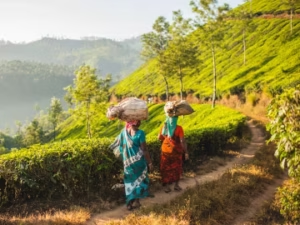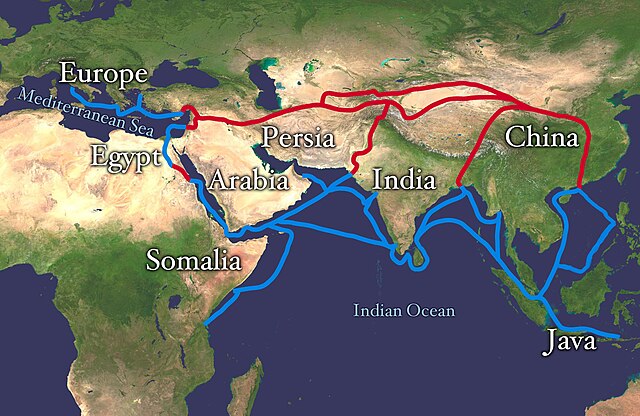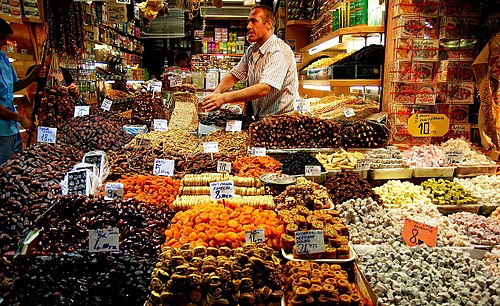How India Became the World’s Spice Capital with Karara Foods
India’s rich tapestry of flavours and aromas fascinate culinary experts and historians alike. It has earned the nation its well-deserved title the world’s spice capital. From the lush hillsides of Kerala to the vibrant markets of Rajasthan, India’s diverse landscapes have nurtured an impressive array of spices which shaped global cuisine for centuries. Karara Foods, renowned for its authentic Indian taste, continues this legacy by bringing the essence of these spices into kitchens from our home in Kent throughout the UK and furthermore worldwide. We try to talk through our food. Inspire culinary creativity of others via our home made sauces and chutneys available for sale.
We delve into India’s rich historical journey through the spice trade, tracing its roots from ancient times to its far-reaching impact on global commerce. We highlight its crucial role in transforming cooking practices around the world, not only enhancing the flavour of dishes but also shaping culinary traditions. Join us as we uncover the captivating stories behind the spices that have turned Indian food into a beloved staple across continents. Discover how these aromatic treasures have influenced cultures, sparked exploration, and united diverse communities through the universal language of taste.



Unveiling the Spice Route
The Spice Route is a network of ancient trade journeys consequently these played a pivotal role in shaping global commerce and cultural exchange. We explore its origins and India’s position in this fascinating journey.
Spice Trade Origins
The spice trade dates back to ancient civilisations. Its roots trace back as early as 3000 BC. Egyptian hieroglyphs mention cinnamon in addition the Bible references spices in various contexts.
Initially, spices were used for medicinal and religious purposes, however as their culinary potential was discovered, demand skyrocketed across the ancient world.
Arab traders dominated the early spice routes. They carefully guarded their sources to maintain control. This secrecy led to mystical tales about the origins of spices, furthermore increasing their allure and value.
By the Middle Ages, spices were a symbol of wealth and power in Europe, spurring explorers to seek direct routes to the spice-producing regions of the East.





India’s Strategic Position
India’s geographical location significantly made it a natural hub for the spice trade, acting as a bridge between East and West. Its diverse climate and fertile lands allowed for the cultivation of a wide variety of spices.
The country’s extensive coastline facilitated maritime trade, with ports such as Calicut and furthermore Cochin. This allowed them to become major spice trading centres. These ports ultimately attracted merchants from across the globe, including Arabs, secondly Chinese, and then Europeans.
India’s role firstly in the spice trade was be far beyond production. Indian traders and merchants played a crucial part in distribution and exchange of spices significantly developing a sophisticated trade networks which spanned continents.
The strategic importance of India in the spice trade ultimately led to colonisation attempts by European powers, significantly altering the course of world history.





India: The Heart of Spice
India’s diverse landscapes and climates have nurtured an impressive array of spices, each with its unique flavour profile and cultural significance. Lets delve into some key spices and their impact on Indian culture.
The Key Spices of India
Turmeric, frequently called the “golden spice,” is a staple in Indian cuisine. It is known for its vibrant yellow colour and earthy flavour. It is prized for its anti-inflammatory properties.
Cardamom, is the “queen of spices,” It has a sweet, aromatic flavour to savoury dishes and desserts. It’s therefore an essential component of garam masala, a popular spice blend.
Cumin, together with its warm, earthy notes, is used extensively in Indian cooking. It’s frequentley the first spice added to hot oil when preparing curries, releasing its distinctive aroma.
Black pepper, once worth its weight in gold, originated in the Malabar coast of India. Its sharp, pungent flavour complements a wide range of dishes.
Cinnamon, cloves, and moreover nutmeg, have been cultivated for centuries and are integral to many Indian recipes despite not being native to India.










The Cultural Impact of Spices
Spices in India go far beyond mere flavouring. They’re absolutely woven into the culture and tradition. Many spices hold religious significance and are therefore used in rituals and furthermore ceremonies.
For example Tumeric is used during Indian weddings. The haldi ceremony is a vibrant pre-wedding ritual in many Indian communities, where turmeric (haldi) paste is applied to the bride and groom, symbolising blessings and good fortune.
In Ayurveda, India’s traditional system of medicine. It is known that spices play a critical role. Each spice is believed to have specific healing properties. balancing the body’s energy.


In Ayurveda, India’s traditional system of medicine. It is known that spices play a critical role. Each spice is believed to have specific healing properties. balancing the body’s energy.
Indian cuisine’s complexity and depth of flavour are largely due to its masterful use of spices. Regional variations in spice usage contribute to the diverse culinary landscape of India.
Spices have also influenced Indian art and literature. The vivid colours of spices are often reflected in traditional textiles and paintings, while spice-related metaphors pepper Indian poetry and prose.
The spice trade significantly impacted India’s economy and international relations, shaping its history and global interactions for centuries.


Karara Foods: Our Culinary Journey
We at Karara Foods bring the rich tapestry of Indian spices and flavours to your table, offering an authentic taste of India’s culinary heritage. Come explore how we capture our essence of Karara, bring authentic tastes to our customers and give life through our catering services.We believe taste matters.


Authentic Indian Cuisine
Karara Foods prides itself on preserving the authenticity of Indian recipes while adapting to modern tastes and dietary requirements. Chef Paul Babra uses traditional cooking techniques from his childhood, ensuring each dish captures the true essence of authentic Indian flavours.
The Karara Foods menu showcases the diversity of Indian cuisine, featuring dishes from various regions of India. From the rich, creamy curries of North India to the fiery, coconut-infused dishes of the South, there’s something to satisfy everyone.
Spices are at the heart of Karara Foods’ culinary philosophy. We source high-quality, fresh spices and blend them in-house to create our own flavour profiles that are the hallmark of our food.
We also cater to different dietary needs, offering vegetarian, vegan, and additionally gluten-free and dairy free options without compromising on taste or authenticity.




Come experience Indian food with us
We bring vibrant flavours and aromas of India to your events through professional catering services. Whether it’s a wedding, corporate event, or intimate dinner party, we tailor our food and service to suit your needs.
Our catering service goes beyond just food. Karara Foods create an immersive Indian dining experience. We complete this with traditional serving styles and, if desired, cultural elements like music or decor.
The team at Karara Foods work closely with clients to customise menus, ensuring that your event is unique and memorable. We accommodate various preferences, from mild to spicy, and traditional to fusion cuisines.
We at Karara Foods’ have a commitment to quality. Our staff are trained to give professional, attentive service that reflects the hospitality India is known for.


